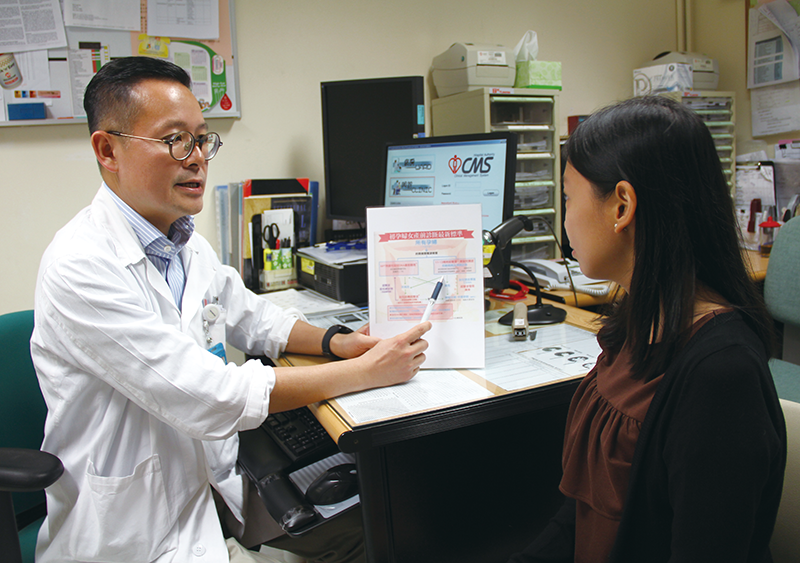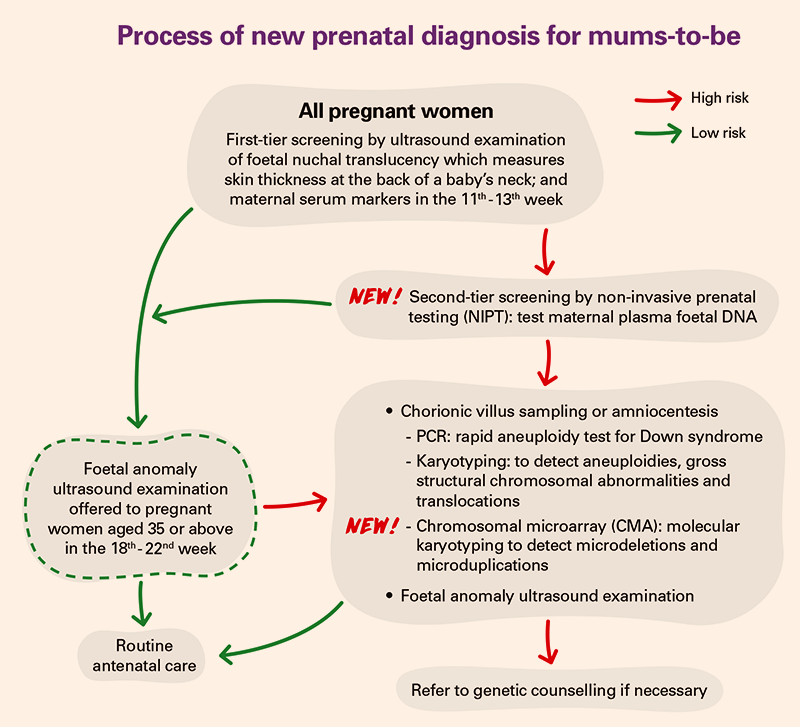New era of prenatal testing
Parenting is an arduous journey since the sparkling moment of conception. Parents often ride an emotional roller coaster when they learn about uncertainties of any congenital diseases or abnormalities such as Down syndrome, developmental delay, organ malformation or skeletal abnormalities. Fortunately, prenatal genetic and genomic (G/G) tests providing insightful information on the health and condition of the foetus are available to help make pregnancy journey less stressful.
In early 2019, Hospital Authority set up a Steering Group on Genetic and Genomic Services to spearhead the overall development of G/G services in HA. Moreover, HA Strategic Service Framework for Genetic and Genomic Services will be released soon to map out the development of G/G services, including prenatal diagnosis, for the next five to ten years.
Dr Leung Wing-cheong, Chairman of Central Committee on Genetic Services, explains the relationship between genome, chromosome, gene and Deoxyribonucleic acid (DNA) with an analogy. Imagine human genome is a book series with each book equivalent to a chromosome. Chapters are made up of words, as genes are made up of DNA.
Genes are basic physical and functional unit of heredity, having great impact on the growth and development of foetus. It is estimated that every human being has about 30,000 genes distributed over 23 pairs of chromosomes. Each gene has a different function, and controls different kinds of biological activities including foetal growth, metabolism, personality, cognition, proliferation, etc.
Safe and accurate G/G testing gives every pregnant mother peace of mind in expecting her newborn. Two new services of prenatal diagnosis are introduced by HA this year, namely chromosomal microarray (CMA) in June and non-invasive prenatal testing (NIPT) in late 2019. These diagnostic tests assess the risk of having a baby with congenital abnormalities and enable early intervention, providing more protection to the foetus and the mother.
Among 35,000 deliveries in public hospitals last year, Dr Leung estimates that comprehensive prenatal genetic testing will detect over 50 babies with Down syndrome and over 100 babies with other congenital diseases or abnormalities.
Moreover, Dr Leung emphasises the importance of pre-test and post-test counselling. “Currently, there are still many chromosome imbalances with unknown clinical significance. Therefore, we should discuss with the expectant mothers and their spouses to find out what they want to know before testing.” Genetic counselling will be offered to the family whose baby is detected with congenital diseases or abnormalities. The goal is to help the family understand hereditary nature, the risk of occurrence of the disease, as well as helping the couple make informed decision on family planning regarding their family structure, not only for the affected pregnancy but also for future pregnancy.
● Pregnancy with peace of mind
COVER STORY
● Tech breakthrough brings two new prenatal tests
● Lesser-known perspectives of DNA testing
WHAT'S NEW
● Avoid outbreak of Candida auris in hospital
FEATURE
● Love and care behind-the-scene (1)
● Love and care behind-the-scene (2)
● A happy homecoming for a Russian patient stranded far from home
PEOPLE
● A pathologist’s illuminating journey through the world of light art
● Two essentials for a good show
HELEN HA
● HR App keeps HA retirees connected
● Quick registration and payment through one-stop electronic kiosks
● Henry Fan will be the new leader of Hospital Authority
STAFF CORNER
● 生命的圖騰 (Chinese version only)
● Cluster re-delineation compared to Exodus
● New director vows to build a strong team


